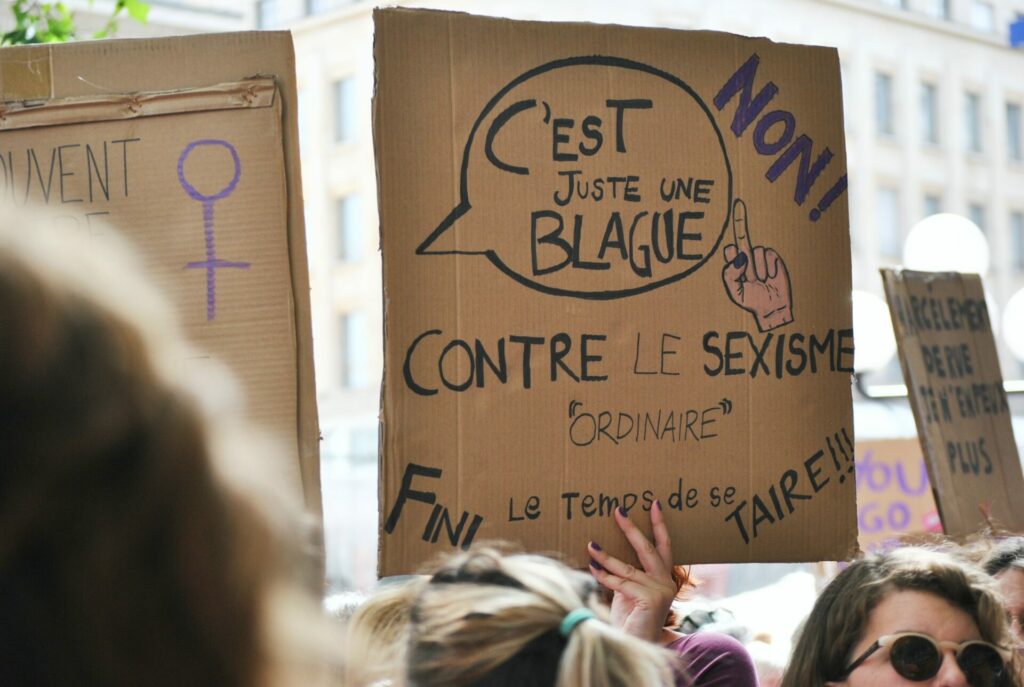The regional government has 56 proposals to initiate policies aimed at combatting violence against women, however, the Brussels Council for Equality between Women and Men believes there is plenty more work to be done on the plan, as many vulnerable groups are not sufficiently catered for.
Some groups within society, including young people, elderly women, migrants and particularly migrant women, are more at risk of neglect, according to a report by the Brussels Council for Equality between Women and Men.
The report is part of the Brussels plan to combat violence against women and will be discussed on Tuesday in the Equal Opportunities Committee of the Brussels Parliament, reports RTBF.
Some of the policies to tackle violence against include training for civil servants, tackling sexual harassment at work, and creating emergency services. Nawal Ben Hamou (PS) is the Secretary of State in charge of the bill, which was put forward in July 2020.
Although the Council welcomes the plan, it believes it still lacks a "regional and integrated political vision of the fight against violence." Adding that the report does not define priorities to prevent, protect, prosecute and coordinate.
"It leaves whole areas of expertise in the fight against violence in the dark, particularly in the healthcare domain, and the fight for the financial autonomy of women," added the Council.
Intersectional plans crucial
For the Council, the fight against violence against women is intersectional and linked to financial autonomy. The Council said in June 2020 that poverty generates and contributes to sexist and sexual violence during the pandemic.
"It, therefore, seems illusory to us to want to fight against violence against women without fighting at the same time for the economic and financial autonomy of women and against social inequalities in general."
"In this context, the employment policy, but also, the issues of quality and accessibility of public and collective services, in particular childcare, do not seem sufficiently developed to us … With less economic and financial autonomy, women have fewer resources to stand up to aggressors, in their private or professional life."
Related News
- Brussels Government invests over €250,000 to tackle sexual harassment at night
- Sexual violence care centre registers 191 victims in first six months
- Feeling unsafe or threatened on a night out? Ask for Angela
The Council pointed out that the fight against violence in healthcare has not been properly addressed, particularly concerning obstetric violence.
In terms of education, the Council said there was a lack of action in the plans, particularly in schools starting from kindergarten.
Focus on young people needed
The plan says very little about young people, "a particularly vulnerable target group," according to the Council. These vulnerable groups include women with a foreign background, domestic workers, women who care for elderly dependents, and older women.
"Young women in Brussels have denounced sexism in the context of the #MeToo movement, whether at school, public spaces, transport, or in nightlife ( especially in the context of the #MeToo movement), which shows how important it is to include young people in the plans."
Two out of three young women say they have experienced either sexual harassment or sexual violence, according to a survey from the Youth Forum from 2020.
The Council believes that violence against sex workers is also inadequately addressed, and calls for a more intersectional vision on the issue of prostitution.
Although the plans could be improved some initiatives have begun. The report comes after the Brussels government granted a subsidy of €250,000 to four projects within the framework of combatting harassment and sexual violence in nightlife.

